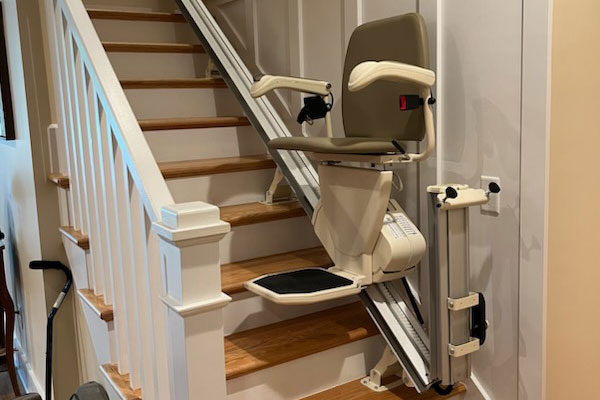For those who want to age in place at their home, a stairlift is a safe and affordable way to improve accessibility. A common question that we get asked at ASI is whether or not stairlifts are tax deductible. Since the 2021 tax season is here, we wanted to write a blog to answer this query.
The short answer as to whether stairlifts are tax deductible is “It depends.” If the stairlift you install in your home is deemed “medically necessary” by a healthcare provider, then it will be tax deductible. Written documentation is required. Stairlift expenses that can be written off include the costs for installation, operation, and maintenance.
There are a variety of tax deductible medical expenses. DME (durable medical equipment) is a category that includes medical equipment a doctor prescribes for a disability or illness. Walkers and wheelchairs are two examples. Oftentimes, people assume that stairlifts fall into this category, but unfortunately they do not. Stairlifts are considered a home modification “capital expense.” In order to deduct a capital expense from your taxes, it must be documented as medically necessary.

If you are a stairlift owner with proper documentation from a doctor, your associated expenses should be recorded as an “itemized deduction” on your taxes. At ASI, we recommend working closely with a financial professional to ensure that you get the most return on your stairlift investment.



